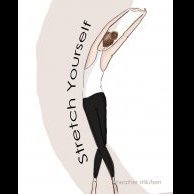I am in the getting close to my bariatric surgery! I am feeling excited, nervous! I just have so many feelings I can’t describe.
So here is my story… my surgery will be in December and although some might think it is the worse time to get it done because of all the Food and Festivities that are happening around that time, I see it as the perfect time because during the holiday seasons it is when I see everything so nice, warm and I am truly happy, with all the festivities. I start being thankful starting with Thanksgiving, on Christmas the same I count my blessings and on New Year’s I take inventory of all of my family and my successes always hopeful for the New Year that awaits! Life cannot be any more perfect…… but the reality is that it can be! If I would just lose my damn weight! That is why this is the perfect time because of New Year I always see it as a time to let go of the old and in with the new! This time it will be a New me!
Other feelings I have are of letting my family down and myself for not having the willpower, not being able to do it on my own, and now left to having to do this surgery as my last resort. it is overwhelmingly exciting and nerve wrecking as I first noted. At the moment I feel that I am ready, but am I? That is why I am here in this bariatric group website I want to see others success story. I want to make online friends with others who have success stories and weight issues same as me, that I can relate. I also want to finally get the backbone I need to go through with this life changing surgery, as I have heard and seen from others. I am hoping I can also be motivation and help others I plan to make it a life goal to help others who have the same exact fears as I do, to make them feel more at ease because as far as the way I feel right now I get adrenaline rush just the thought because I do want to do this surgery because entering 2021 I want to be able to welcome the new me.
I don’t have many friends I can talk to regarding my fat issues because it is so very personal and I don’t know how confidential it would be. Plus I been threw a lot of fat shaming done by people I know and I always want to be seen as strong and unaffected but I am very much affected. If there is another reason to get this surgery done other than the many amazing health benefits and longevity, and having a complete circle as far as my happiness, it is to shut all the haters and fat shamers up. The number one reason still remains always Definitely my family, myself above all!









